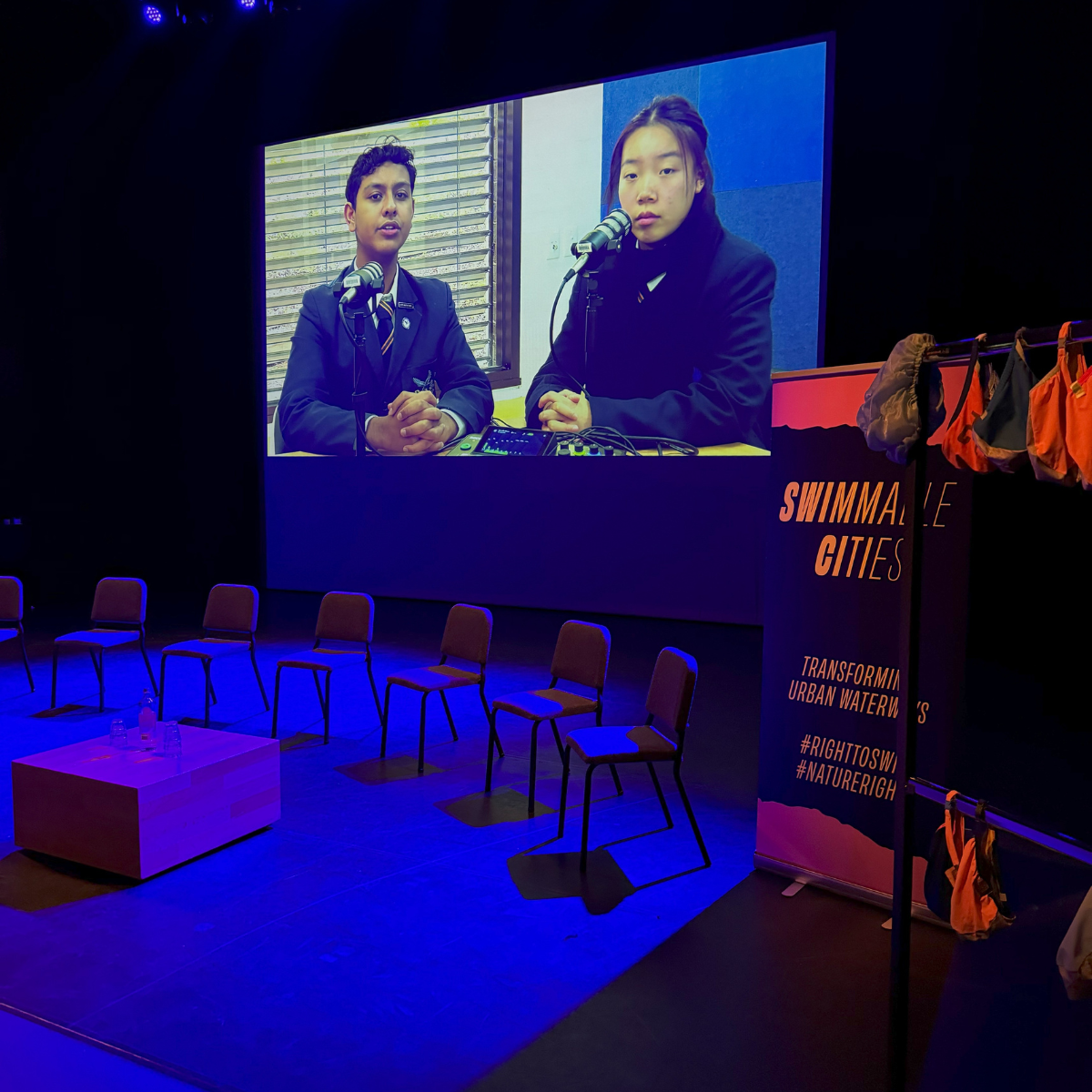
Year 9 Students on the World Stage
From Blind Creek to Rotterdam, our Year 9 students have taken their local learning global showcasing their voices and vision at the world’s first Swimmable Cities Summit.
What began as an investigation into the swimability of local waterways through the Crews Not Passengers elective has grown into something extraordinary. Held on the 22 to 24 June, the Summit brought together global leaders in science, design and sustainability. Among them were our students, sharing their powerful, student-led work with an international audience.
Their journey started with one question:
How do we clearly hear the voice of a healthy river?
This question led students to consider not only the science and ecology of waterways, but also the stories, relationships, and responsibilities communities have with the environments around them.
Students explored Melbourne’s urban waterways through science, storytelling and community engagement. Focusing on Blind Creek, they assessed pollution levels and biodiversity and examined how human activity affects water quality as it flows toward Port Phillip Bay.
But it wasn’t just science, it was art. Students created original soundscapes, captured striking photography, and produced vodcasts (Video-On-Demand-cast, a video version of a podcast) that brought complex environmental issues to life. Each group tackled a unique theme, from citizen science to ecological restoration, showcasing their creativity and care for our environment.
A highlight of the project was a collaboration with Matt Sykes, Founder of Regeneration Projects and leader of the Two Bays initiative. Matt challenged students to think globally while acting locally, helping them connect their inquiry to broader environmental efforts. His guidance elevated the students’ work and ultimately led to the selection of their summary vodcast for international broadcast.
That vodcast, which was crafted from weeks of research, fieldwork and reflection, was featured during the Closing Plenary of the Swimmable Cities Summit in Rotterdam. It captured the attention of researchers, policymakers and community leaders from around the world.
“The next generation isn’t waiting to be invited to the table,” said one delegate. “They’re already shaping the future.”
At TKS, we believe education should be bold, purposeful and deeply connected to the world outside the classroom. This project is proof of what happens when students are empowered to lead, create and advocate for change.
We couldn’t be prouder of our students, not just for the quality of their work, but for their curiosity, collaboration, and sense of purpose. From Blind Creek in Melbourne’s east to the world stage in Rotterdam, they’ve shown what’s possible when young people are empowered to listen, question, and lead.
We look forward to continuing this important work with Matt Sykes and Regeneration Projects in 2026 as we deepen our focus on environmental learning and student-led action.
Congratulations to our global change-makers.
